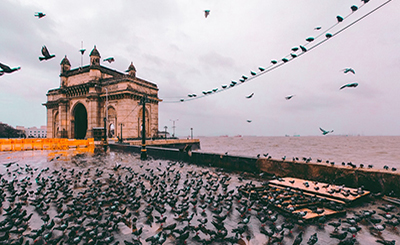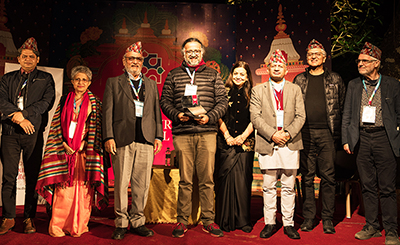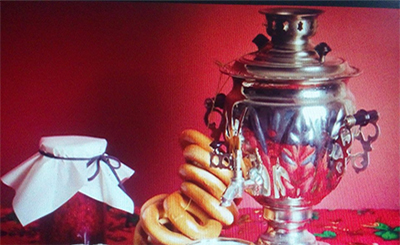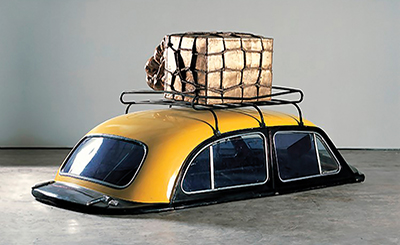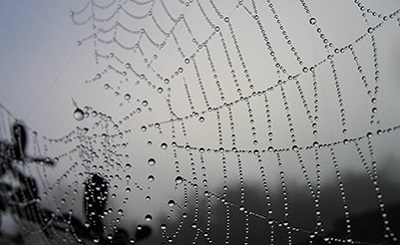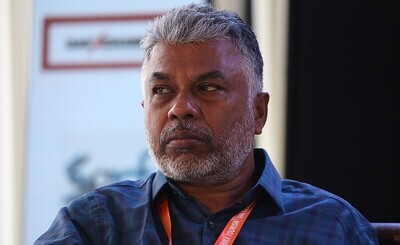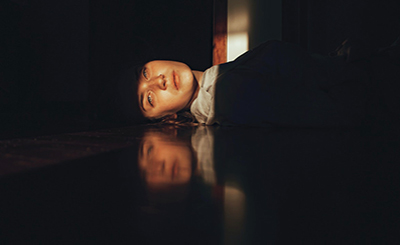
‘And miles to go before I sleep,
And miles to go before I sleep.’
Robert Frost, ‘Stopping By Woods On A Snowy Evening’
Yusuf and Maryam had had their lives planned; but who exactly was doing the planning, well, that’s the untold arc of an as yet untold story. And without belabouring it, my wish here is for that wild red herring, in all its reddened errancy, to find the fold again, to swim and shimmy, bunched and glistening, with the erstwhile shoal.
But the fish I catch and free, but the fish I catch then free, well, the ocean is a damned big place.
*
Dubbed el-hajjeh from a relatively young age, though she’d not an overtly religious bone in her body, Maryam was the woman all consulted in times of stress or worse, in times of crisis, because she was considered to be as she was, sage with the sagacity of that melting-place where the eagle and the lioness are at-one, daggering eye of a piece with pillowed mane. And Yusuf, well: what better tribute than to say that, deeply-social, he’d hundreds of good friends, and that each one of them to the letter considered him their ‘best’ friend. The minuet they danced across the waxed parquet of their lives was a stronghold of balance but a dynamo of rhythm, too. May God have mercy on their resting souls.
One morning, Yusuf spoke to me of his son, the child he’d loved like a fifth, sixth and seventh artery feeding the blood-red oval that was the uncoiled spring of his life, the child who’d died so unnaturally and so prematurely, the child who became a man in time, but who was cut-down in that prime by the marring bullet of chance. We were seated in the den of his large and elegant apartment in one of the most prestigious parts of West Beirut. While serenaded by the honking brouhahas of the traffic that inched across the wide thoroughfare below the window, we spoke to each other in hushed hymns. I still recall the way the folds of his light tan-brown robe folded and unfolded, folded and unfolded about his belly and his shifting sitting knees as he put away a file of documents he’d just been consulting, then reached round to pluck a cushion and placed it behind his back, reclining backwards now with more ease and exhaling with a heave to suggest the sufferance of too much evil in a world too many, far too many for him. Quickly he lifted his large square glasses from their perch on the bridge of his nose, glasses that harked and still quite tellingly from the seventies of the previous century, wiped his large dark eyes, amorous and wet, wiped the chunky square frames with a tissue, and then replaced them again, looking ponderously down at the floor for a moment or two, as though part of a different modal world; he then looked back up and at me. His lower lip was quivering, and whether it was in sooth far thicker than his upper lip, it seemed to grow tumescent as he began to speak, a thick and curving line the colour of an autumn leaf. The voice that now emerged, uttered and plaintive, was both groggy and tenderly high-pitched at the same time. He was, it seemed, in the midst of winter.
‘You have to understand,’ he said, ‘you have to understand that the boy was geared for a different kind of world. He belonged, on deck, among the phalanxes of the angels. In spite of the unjust burden of pain, he’d no rancour in his heart, never. Each day and night he dallied here on this forlorn planet, he was like a piece of the morning; it was like he shared in some secret way with the sempiternal sunrise.
‘He used to speak of the “gaze” you know. And yes, I know what you might be thinking: that there are psychoanalytic resources to explain the gaze, and to explain the insistence on the gaze, too. But I don’t want us to be crass here. He spoke of it because in some depth grammar of his being, I think when he looked into or at his mother’s sea-green eyes he recollectedat some gut-level the stimuli of his preverbal existence — God! my boy was so good with words: it’s hard to imagine he’d ever had a preverbal life! Anyway, what I wanted to say was that if he’d indeed such a premonition, such a clairvoyant inkling, well, that always made good sense to me. My wife, you see, yes, she too is and has been a wailing exile, a kind of sparrow in this world we populate like ants and beetles. If there ever was scope for a few red herrings, or a few white herrings among the world’s sundry batch; if there ever might be envisaged a berth for felled or fallen angels here, well, she too, I’d suppose...’
At which point I stopped him. I found it hard to match his look, face to face. I found myself avoiding his eyes, looking deftly, daftly left then right, right then left, only now and again alighting upon those life-stricken, wet and amorous dark eyes. Bereft, Yusuf looked like a newly-beaten puppy; though he was in age a very wizened animal. Touched and stroked and lit again in his soul’s fast quick, he now continued:
‘You find it difficult to bear this, I know. There was a time the burden nearly got the better of me. But I was able to find a pathway through that portal of unhoused hurt, the door through which no parsed Why finds ingress.’
I smiled, because he too, I’d noticed had an uncanny way with words.
‘Ah. But these are only on loan. The words come via ventriloquism, and I am the puppet of my son, though passed, gone from the waking world. But the marionette’s still worth it, and I hope you enjoy the show.’ Yusuf emitted a low, soft chuckle whose texture ran on the ear like silken thread.
I nodded, my face creased by gladness, wonder. Hedug his right hand now into a pile of assorted sunflower seeds piled in a heap in a bowl on the wide rectangular table that stood by the level of his knees. After mulcting then chewing a few, he cleared his throat again, and then ran his opened right palm down from across his jaw in a sort of cleansing motion and over the turkey-like wrinkles of his neck and throat. It seemed to be a staple gesture for him, indicating the onset of summary thought, speech. His skin was somewhere between vulture-grey and the pink one finds on the inside of a filleted filet; and it bristled with stubble that must have been four days’ grown at the least. He saw me notice this gesture of his so much like a dry ablution, and then looked up at the corniced ceiling briefly, pricked by a small warm smile. The old man’s presence held and evoked such weight, burdened with flesh and history, that the room suddenly seemed to colour in sepia, or oak-brown. He broke the wine-toned darkness, though, by saying,
‘You see this roughshod beard?’
Like an automatism, with no premeditation, my whole head screwed up to the right in an angle like it was aping a question mark; I felt a baffled expression move my features before I was aware of the bafflement.
‘Yes,’ I now said. ‘I do.’
He laughed outright for the first time now, emitting gladness, joy, untampered by the load of regret or remorse that he bore, it seemed to me, with each thought that passed through the cream-coloured innards of his skull, with each word that made its way, staggered, up and out of that grizzled gorge.
He told me now of how his son, after his coddled toddlerhood, at around the ages of four, five, six, was wont to climb around his back, seated as he was used to being at the far corner of a large sofa, one of two at right angles, that faced the television in the salon of their London home of yore; how his son would climb in such a way as to then seat himself, propped, a small ape to a larger, behind and above the crow-bent spine of his father; how his son would proceed to reach round with his small hands and rustle his father’s stubble, as though in the act, unbeknownst,of offering a blessing to the incumbent beard; as though, baptismal, to incarnate the artless play of his own dapper innocence.
Time was getting on, taking place, as the night grew outside the window to a blue and bluer frill. I asked him a few more questions, necessary ones for the effort I’d undertaken to fit the puzzle’s pieces together. And he responded, but most of the time, desultorily, for the quick that had just now so quickened him seemed close to spent. He looked over at the small notepad upon which I’d scribbled for the last half-hour, and said,
‘Good stuff, was it?’
I nodded, then folded the pad and placed it in the near pocket of my brown leather satchel. As I rose to leave, bidding him a temporary farewell, Yusuf turned again to the television, raised the volume while performing a quick and perfunctory nod; he seemed dispossessed. He’d returned to the workaday world, the humdrum one in which we die. The other world he’d spoken of, however, where the hale, lit, angelic choirs sang for their belonging, was still dyed with fail-safe hues — but it was once more a forgotten place. Something of him had collapsed, dismembered; his buoyancy went desiccate, as though his body’s water was sucked-away, closed-down, dry. I took one last look at the man, as he peered at the television, and I saw a face fed by stone. There was no more heart there; no more heart to give.
*
When Sherif was born the world turned, peopled by one more being, sure. But I wouldn’t be writing this account here if that were solely that. Because there is, if you like, a distinction to be made, between the global account and the local one. And I take my lead here from some gritty but still highfalutin philosopher of whose near or distant memory I fail to fathom clearly now. I believe he was arguing about the problem of evil, and what he said was something like this. Yes, there may well be good and sturdy ways to reconcile the existence of an omnipotent, omniscient and morally perfect Being with the quite evident fact of the rule of suffering for most of the time for most of the world. But that global reconciliation was a different question to the more local one, of why ‘so much?’ Or, put in a way which stamps the full force of the caveat, why this person, not that, why this duration and depth of suffering and not one mote less, and so on, and so on. If a two-year-old is dying of cancer, we might justly ask, even if cancer is a necessary evil, why it didn’t land in the lap or body of an otherwise healthy eighty-one-year-old? If cancer, that evil we’ve agreed may have right-of-way in the world, globally-speaking, if that cancer in the end did land in the lap or body of the eighty-one-year-old in question, well, why not let him or her suffer said evil one or two seconds less, or with one or two lesser degrees of painfulness, than would otherwise have happened, and so on? And what I suppose I mean by this roundabout here is that, yes, when Sherif was born, the world turned, peopled by one more being, sure. But did something else happen at the same time? Something so radical that it burned-up and burned-through to a crisp ash and the truest sense of ending what was a staple occurrence anyway. A king’s pyre, shall we say, for even the microbe we all are, or might happen to be? Thus, was there any pinioned point in that supplement to the world being or turning out to be Sherif and not someone else?
In some ways, if and when pressured to its pith, this is the ultimate question. If there is a God, then there is a liberating shard of Him aflame in all that is. If there is a shard of Him aflame in all beings then that ineffable glow of the Infinite within the finite makes it reasonable for each to be in community with the whole of existence, but also for each to be each, the consummation of all of that whole (of existence) at the same time. And I suppose I want to make that claim for the young man whose curtailed life proffers the spur of this tell-tale — Sherif, born of man and woman; Sherif, bearing a tray in the domicile of existence. And Sherif: doing, being all that — then as now, I should say; even if he may seem to have winked-away, whisked and wrapped by coldness and the puma-coloured air, his eyes sealed, finally, against the fever of life in the morning.
He was a man, shall we say, who peopled himself to the point of absurdity; a man without the modesty to suit or befit the undulance of his cadence, the health-giving but melancholy rhythm of his innards. He was full (well-nigh fuelled by it) of humility, though, which is a different notion; and the difference might be fleshed by holding in the balance a muddy ditch and a long and deep, hip-shaped valley rolling between two august mountains. He was brilliant with a terrible brilliance, as I gather; and yet, he was one of the most abject men of whom I’ve ever heard. And so, these weaving pages could never wind up as hagiography; no; merely the descrying of the traces left by an exceptional person, the foot-shaped skeins he left in the sand, as he walked into the sea.
*
Maryam, his emerald-eyed mother, lit the wick that burned down into the melting wax. She’d spied the precocity of her boy and had responded in kind, delivering books of words like nourishing meals; good books to feed the hunger that was evident there, in the present tense turned past, if I may coin a strange metaphor, of his young, beautiful eyes. By the age of eleven or twelve, Sherif had worked his way through most of Austen and Dickens. After tearing up briefly, Maryam continued,
‘It would have been criminal not to. Sherif thrilled in the habit of reading and I wanted him to read the books that had given me so much pleasure, that had watered the inner reservoir.’
Later, I was to find out how much Maryam had made use of that same inner reservoir over the decades of her marriage to Yusuf. Because in the prime period of their shared life, Yusuf was wont to travel, and prodigally, for his work; but for his pleasure, too. Which had meant that Maryam was left tending the home, a homemaker with, at times, a little too much lonesome time on her hands.
‘So, I filled those hands with books. You see, though I graduated with a degree in Economics, that wasn’t really my choice; my parents had directed that. But I, too, from a young age had a passion for English literature. That was partly down to my own mother, who was an academic at a time in Lebanon when to be a woman academic was rare, and a bit like tempting fate.’
She almost leapt off her seat now, with the brimming excitement of an impassioned girl, not a woman past middle age; a girl who wanted to share her discovery, sparkling with newness still, though that hot coal was an ember too. She plucked a thick pale blue tome from one of the bookshelves facing us and, opening the front cover, peering inside, nodded her head while smiling knowingly.
‘This is an edition of Shakespeare’s collected works. It was given me as a wedding-present from a mutual friend of mine and Yusuf’s. Look: you can see the dedication here.’
I looked, revolving the heavy, burly hardback in my hands, as though to weigh it for evidence of the enchanted stuff of the past. She had seated herself again, bunched over her knees as was her wont. She looked like she was hugging her own body, but it was a posture I came to know, love. She’d the rapt air of a teacher; it seemed like she saw her interlocutor as a child or neophyte to whom to explain in clean and limpid ways the lessons of life. I was to learn later, for instance, that had this quite evidently exceptionally intelligent woman not decided to become a homemaker, she had always wanted to become a paediatrician. And I’ve no doubt she would have soared there, such was her predestined love of the young.
Teacherly, thus, I’d always the sense when I spoke to her that she was embossing commandments on the tabula rasa of my questioning presence, seated there like a kid, hungering for knowledge; but the laws and the lore she imparted were never imparted in an overtly forthright or brash way. Like the God of the new, not the old testament, she taught, yes, but like a mother, like a zealot of a mother.
‘You have to understand,’ she continued, between sips of her small and cello-shaped glass of mint tea, ‘Sherif, though absurdly bookish, was never a loner. He was a well-rounded boy from the start. He played sports, and was very good at them too. He was popular among his schoolfriends. He was handsome, oh, so handsome! He was caring, he was funny.’
Naturally, then, I asked what had happened to have it so that we were wound up here talking and reconstructing the tale of a young man who’d taken his own life. I didn’t put it like that, starkly so, of course. I merely said in effect, ‘what then?’ But Maryam was far from dense.
‘It was about the age of fifteen, sixteen, seventeen. Yes, that’s when I, we, my husband and myself, noticed the change. He’d always been a bookworm, you see, but from that age he began to delve more deeply, as though into a labyrinth. He made a maze for himself, of that I’m now sure. He would lock himself away reading for days and days on end. We were quite happy with that of course, but a small and tender part of the both of us was probably worried, too, though that sense of something perhaps off, awry, wouldn’t kick-in and bear fruit till a few years later. I remember our trip to Jerusalem when Sherif was newly nineteen. That was on the cusp of when, we noticed, his slightly strange behaviour began to get out of hand.’
She told me of that family holiday now. And how Sherif would stay apart from the other youths who were party to that trip. And how the two of them, Yusuf and herself, were baffled, but still parried away the thought that there was anything substantially wrong.
‘We just assumed that it was the age, the period or phase he was going through. You know, nineteen can be such an intemperate age, prone to such mood-swings. And Sherif was a tuning-fork; so that whatever new antennae, whatever new sensitivities were natural for that transitional age were multiplied in their delicacy a hundred-fold in the heart and mind of my dear boy. We simply played patience.’
There were no tears in her eyes; no; the look was more one of pained disgust now.No doubt, she’d moved on from a mother’s native Saturn of sadness, to the more considered view of spilt and spilling rancour. Indeed, from what I’d gathered from Yusuf, most of Sherif’s too-angelic traits were his inheritance from Maryam. For instance, his surd-like humanitarianism, the square root of zero, if I may. At thirteen or fourteen, I was told, when the Sri Lankan housekeeper might bring Yusuf’s dinner on a tray to the living room of their large mock-Georgian home in Wimbledon all those years and years ago, of how Sherif might stand up and take the tray for the final leg of that despatch and deliver it himself. Yusuf had chuckled heartily when mentioning this.
‘The poor boy wasn’t doing it to please me. He was doing it to please the housekeeper.’
*
In the days that followed, I continued to ply them with questions. My aim as ever was to find or forge some kind of sense of it all, the blinding, terrific waste. To harden the softer stuff of so much mystery in the kiln and smithy of my own belated words.And on the last day of my planned interviews with the old couple, towards the end of what would be my final interview, but this last time with the both of them at the same time, they turned the tables, and asked me. Many questions. But one in particular, and the obvious one, I guess.
They both said, in their own ways, that they hadn’t asked this before because they were so grateful that someone, anyone, might be interested enough to hear what they had to say. But that now, after close to a month of gentle interrogation, their curiosities were piqued. And so, I told them what I was bound and double-bound to tell them.
That for the last few months of his life — before he disappeared, only to be found hanged by his own hand in a dark and unfrequented alley outside a cinema that was nearby their Verdun flat —that I had been his lover.
And that I had been his lover.
More from The Byword
Comments
*Comments will be moderated




